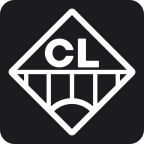Nuview has announced the launch of a constellation of satellites that will use lidar to map the Earth in three dimensions
Nuview's constellation of satellites will use lidar to create 3D maps, which could be beneficial to agricultural and urban planners.

Satellites flying above Earth's orbit have largely provided a two-dimensional view of our planet, but a Florida-based startup is hoping to change that by using satellites to regularly create 3D maps of the entire surface of the planet.
At the Geospatial World Forum in Rotterdam, the Netherlands, on May 2-5, Nuview announced its plans to launch a satellite constellation that will use lidar to map the Earth in three dimensions.
"Our fleet of Lidar satellites will provide unprecedented amounts of information, drive innovation and progress across numerous industries, and revolutionize the way we understand and interact with the Earth," Clint Graumann, Nuview's chief executive and co-founder, said in the statement.
It's unclear when Nuview plans to launch its Lidar constellation, but the company claims it already has $1.2 billion worth of data contracts with potential customers.
LiDAR, or light detection and ranging, uses pulsed lasers to measure distance by detecting how long it takes the reflected light to return to the receiver. The technology is able to map the Earth's pattern in great detail, and it does so by sending a steady stream of laser pulses through trees and other types of vegetation. So far, most other attempts to map the Earth's surface using Lidar have used drones or aircraft. NASA's ICESat-2 satellite, launched in 2018 to measure the height of the Arctic ice cap, is one of a handful that uses orbiting lidar.
As a result, only about 5 percent of Earth's land has been mapped by lidar, according to Nuview. But because of recent technological innovations, and a growing space industry that allows better and cheaper access to orbit, Nuview was able to design a constellation of 20 LiDAR satellites. Modern satellites are also more capable of handling the high power demands of lidar sensors.
Nuview claims that its Lidar constellation "will collect data more than 100 times faster than current commercial aerial solutions." According to Nuview, the company predicts there will be a large market for its data, which agriculture can use to optimize crop yields and water use, and which urban planners can use to create more efficient and sustainable environments for cities.
Source: NetEase








